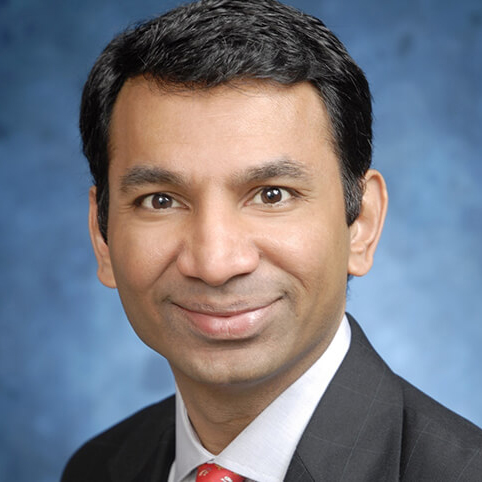Existing trends have been accelerated by COVID-19, and new imperatives have sprung up as companies strive to adapt and succeed.
Here are five key talking points and takeaways from the event:
Emerging stronger from the pandemic
COVID-19 has delivered the fastest and deepest shock to the global economy in history, bringing critical vulnerabilities into sharp relief, but also creating opportunities to act boldly and build back a more robust and equitable society.
“There’s a lot of change and opportunity coming,” affirms Dave McKay, Chairman and CEO of RBC. “The recovery cannot be unequal. We have to build back a fairer society. That’s been highlighted by all of the women around the world who have been disproportionately dislocated by the pandemic. Inherent racial inequalities have also been exposed within our society that we have to deal with. We cannot fail.”
The race to digitization is accelerating
The COVID-19 pandemic has accelerated trends that were already happening within the industry, particularly the adoption of technological and digital capabilities as more and more consumers choose to bank digitally.
“The world is changing at an accelerating pace,” says Kelly King, Chairman and CEO of Truist. “And that's really because of the dramatic increase in digital transformation and adoption, which will require financial institutions to invest more dramatically in pure technology.”
For Kelly King, there are three key pillars to this transition. “We call it T3 – technology, touch and trust. Clients want the immediacy of technology, but they also want the availability of trust and touch, because the technology isn’t enough. Sometimes they want to talk to a person that’s more able to meet their needs. So, for us, it’s a migration of technology, touch and trust that will yield a higher quality, higher value proposition.”
Central banks will embrace digital currencies
As digital currencies like bitcoin become more popular, the world’s central banks are beginning to realize they need to get in the game, or risk watching the evolution of money pass them by.
“Central Bank Digital Currencies will become part of the payments landscape over the next few years,” says Ajay Banga, Executive Chairman, Mastercard.
“We’ve launched a sandbox to help central banks and commercial banks connect and work together on this. I believe some form of two-tier payment system where central banks provide the digital currency and commercial banks provide the consumer connectivity, is going to come. Ignore this at your peril.”
ESG standards are rising higher
Financial Institutions are increasingly embracing their role in a sustainable future. The growing uptake of ESG practices has been steadily coming to the forefront of the industry, but the pandemic has been a catalyst for accelerated action.
Lindsay Patrick, Head of Strategy and ESG, RBC Capital Markets, moderated a panel at this year’s conference on leveraging sustainability as a competitive advantage.
Frederick Crawford, President and COO, Alfac Incorporated, outlined how Alfac have been integrating ESG factors into the company’s operations for more than 30 years. In early March, the company issued its first sustainability bond at $400 million to finance existing or future investments in environmental or social projects, reinforcing a longstanding commitment to a business approach that balances purpose and profit.
“What ESG has done for us is institutionalise sustainable processes in a more significant way,” explains Frederick, “with clear metrics to achieve and measurable results. All of that rigor raises standards up to a new level.”
The new politics of COVID-19 relief
It’s been just over a year since the Center for Disease Control and Prevention reported the first known case of COVID-19 in the U.S. A lot has changed since then, with a vaccine rollout and a new administration to lead America through the pandemic.
“The COVID-19 pandemic challenged our sense of normalcy and tested every institution of our daily life,” says U.S. Senator Mike Crapo, who served as one of the lead negotiators in crafting major COVID-19 relief legislation, shaping many of the provisions of the CARES Act designed to provide significant economic support to severely distressed sectors of the U.S. economy in 2020.
Senator Crapo’s strong background in the finance arena has led to his leadership role in making further inroads in key areas of regulatory relief.
“As the nation's health improves and the necessary temporary policies are phased out we will settle on the foundation of proven strong pro-growth fiscal and regulatory policies previously stay in place,” says Senator Crapo.
“The banking sector entered this crisis from a position of strength and has proven its resilience to address the nation's current economic needs, playing a pivotal role in supporting businesses, families and individuals. I’ll continue to press for policy solutions that will help us weather the storm and provide the financial sector with the flexibility it needs.”
